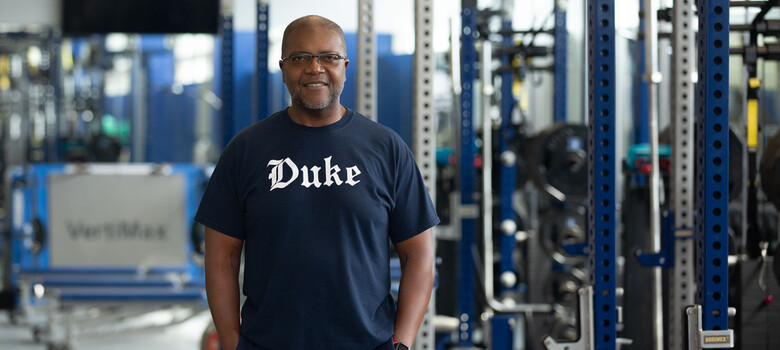Ask These Questions Before Mitral Valve Surgery

Dr. Donald Glower, MD, performs mitral valve surgery at Duke.
Mitral valve regurgitation can do serious damage to your heart. A leaky mitral valve causes blood to flow back into your heart, which makes it harder for oxygen-rich blood to be pumped out to your body. Because mitral valve regurgitation can lead to life-threatening heart failure, arrhythmias, and other abnormal heartbeats, your doctor may recommend heart valve surgery to repair or replace your mitral valve. Surgery may also be recommended if you have mitral valve stenosis, a less common condition that is defined by a narrowed mitral valve. It may also require a valve repair or replacement procedure.
Minimally Invasive Surgery for Mitral Valve Disease
Experienced heart surgeons have several options to treat mitral valve disease when medication is not enough. Typically, mitral valves are repaired or replaced. New less-invasive techniques that use smaller incisions can return you to normal activities faster.
National Registry Tracks Mitral Valve Surgery Success
The Society of Thoracic Surgeons (STS) national registry tracks mitral valve surgery success and complication rates at participating U.S. and international institutions to assess quality and safety. Hospital programs can use the information to compare their own data to the STS national average.
Here renowned heart surgeon Donald Glower, MD, answers questions you should ask if you are considering surgery for mitral valve regurgitation or mitral valve stenosis. His answers also help you understand how Duke compares with STS benchmarks. This will help you find a surgeon and a hospital with the best outcomes.
1. Which is right for me: mitral valve repair or mitral valve replacement?
The answer depends on your anatomy and the condition of your mitral valve. A mitral valve repair restores the valve’s structure and function. Valves that cannot be repaired are replaced with a prosthetic (tissue) or mechanical valve. When recommending a valve, your surgeon will consider your age, lifestyle, and other medical conditions such as your ability to safely take blood-thinning medication. Tissue valves may last up to 20 years and do not require blood-thinning medicines. Mechanical valves are more durable and can last a lifetime but require blood thinning medications and periodic blood tests. Duke offers a full range of tissue and mechanical valves to people who need mitral valve surgery.
Your surgeon’s experience can impact the surgical outcome for mitral valve repair or replacement and may influence the treatment recommended for you. Repairing a mitral valve requires expertise and experience that not all surgeons have. Between 2015 and 2021, surgeons at Duke performed an average of almost 300 mitral surgeries per year, with repair of most degenerative valves and replacement of narrowed or stenotic valves.
| Year | Repairs | Replacements | Total |
| 2015 | 161 | 147 | 308 |
| 2016 | 128 | 148 | 276 |
| 2017 | 149 | 146 | 295 |
| 2018 | 118 | 167 | 285 |
| 2019 | 110 | 152 | 262 |
| 2020 | 98 | 144 | 242 |
| 2021 | 106 | 160 | 266 |
Source: Data provided by STS and Duke.
2. What is the surgeon’s experience with open mitral valve surgery and minimally invasive mitral valve surgery?
Traditional mitral valve surgery is performed through a mid-chest incision and requires opening your breastbone. In contrast, a less-invasive approach uses a small incision between two ribs in your chest.
You may be eligible for a minimally invasive catheterization approach in which surgeons access your mitral valve through a blood vessel in your groin. The benefits of this approach include less risk of bleeding, transfusion, and infection, along with a shorter hospital stay and a faster recovery.
Minimally invasive mitral valve procedures require precision, experience, and skill that are acquired through training and by performing a large number of surgeries. More than 1750 minimally invasive mitral valve repairs and more than 1100 minimally invasive mitral valve replacements have been performed at Duke since the program started in 1996.
3. Should I consider the MitraClip?
If you have certain risk factors that make traditional mitral valve surgery too dangerous, you may be eligible for the MitraClip. During this minimally invasive, catheterization procedure, a clip device is placed in your mitral valve through a blood vessel in your groin.
While results following a MitraClip procedure may not last as long a mitral valve surgical procedure, studies show people who receive the MitraClip experience a better quality of life, fewer readmissions to the hospital for heart failure, and better long-term survival, when compared to patients who only received medication.
4. What is my chance of surviving and doing well after mitral valve surgery?
As with any surgical procedure, mitral valve surgery has risks. The most serious complications associated with mitral valve surgery include stroke, placement of a pacemaker, kidney failure, lung failure, and wound infection. Fortunately, these are unusual. Your surgeon will discuss your personal risk for complications.
Although age can be a risk factor for any procedure, research suggests people 65 and older do well and experience significant benefit from mitral valve procedures.
Duke’s overall survival rates after mitral repair and replacement are better than the national average.
| 2018 | 2019 | 2020 | 2021 | |
| Duke | 100% | 100% | 100% | 98.7% |
| STS National Average | 98.7% | 98.7% | 98.3% | 98.5% |
| 2018 | 2019 | 2020 | 2021 | |
| Duke | 97.9% | 95.8% | 100% | 97.7% |
| STS National Average | 95.5% | 95.2% | 94.0% | 94.5% |
Source: STS. Rates are not risk-adjusted. Survival rate determined using patient mortality status at 30 days after the index procedure.
5. What will my recovery involve?
You may require mild pain medication for a few weeks after discharge from the hospital. You should be back to your daily activities within four weeks after minimally invasive surgery and within eight to twelve weeks following the open-chest approach.



